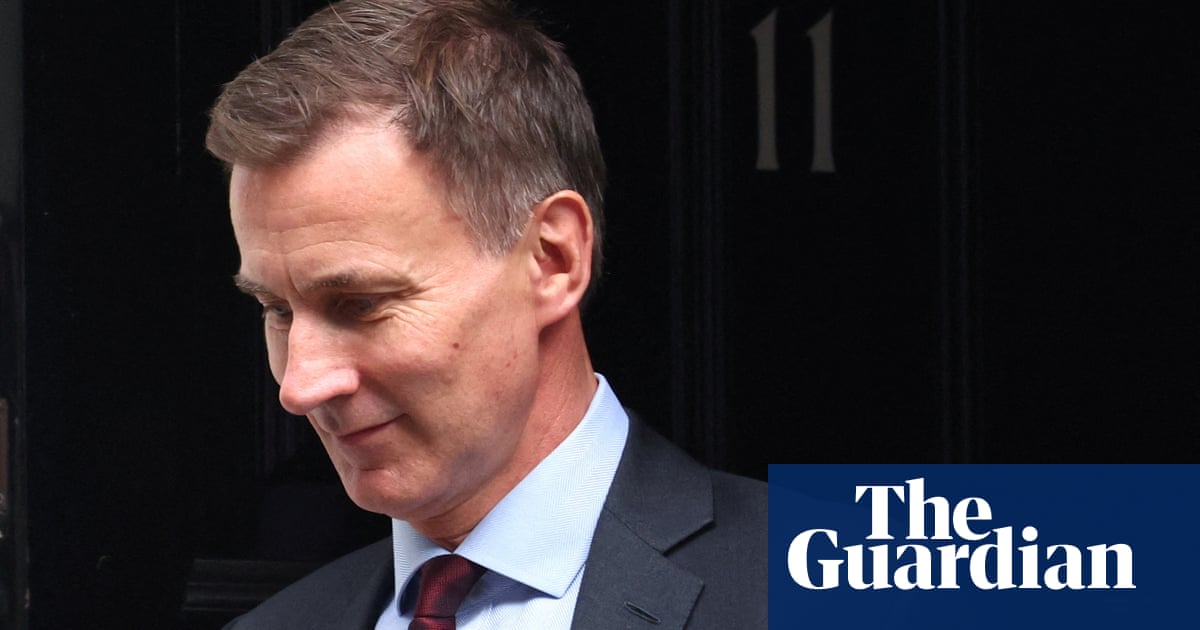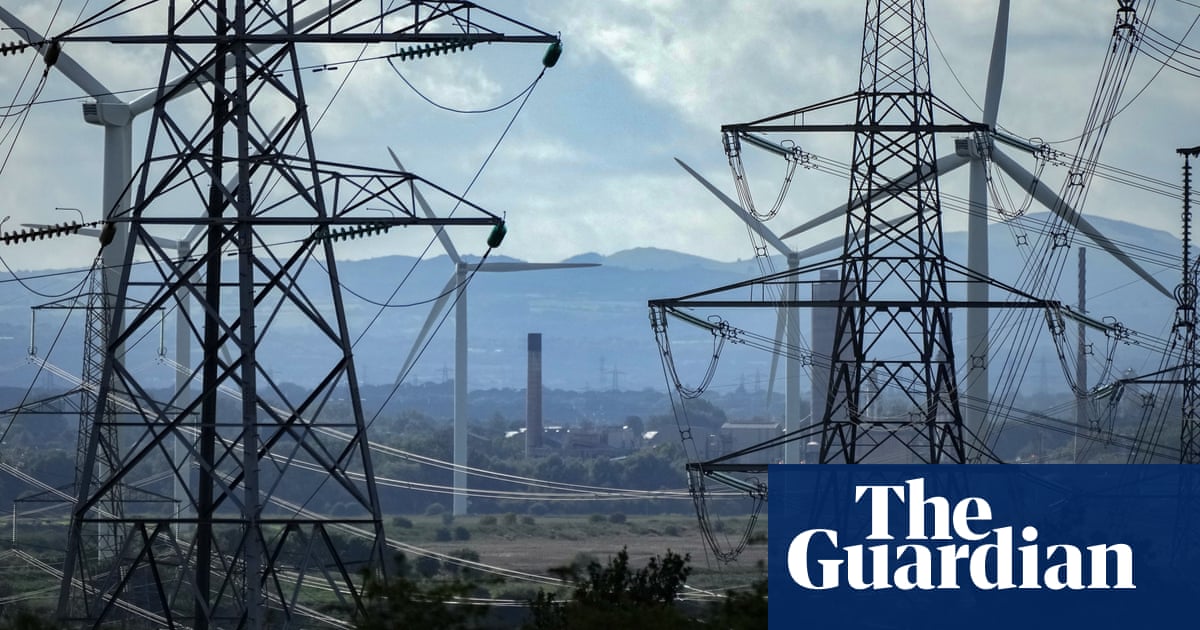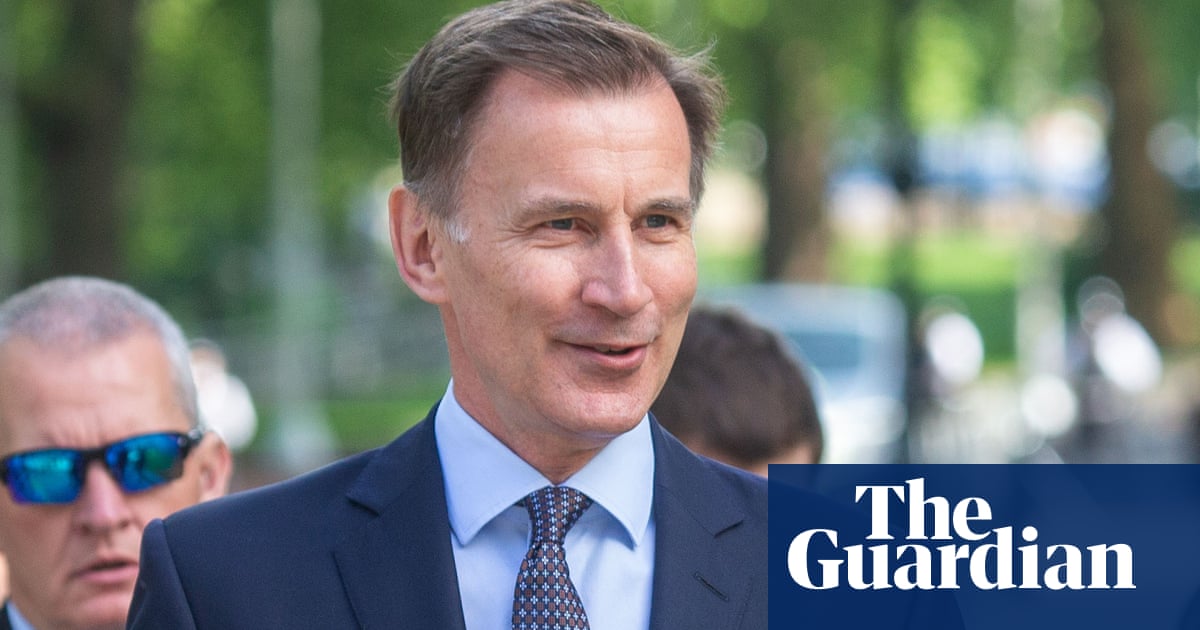
Jeremy Hunt has defended resisting moves to force super-rich people who live in the UK but pay no tax on their offshore income to shoulder more of the burden, as he warned of a “challenging” two years ahead for households.
After a frosty reception to his plan in the autumn statement to drag 6 million people into higher tax rates while the UK plunges into recession, the chancellor said the strain could not fall on only “a very small group of very rich people”.
He promised a “sharp drop” in inflation at the end of 2023, took aim at his Conservative predecessor, explained why many measures announced on Thursday would probably not come into force until after the next election and appeared to suggest Brexit had hampered trade and growth.
In a series of interviews designed to reassure people concerned that the cost of living crisis would be compounded by tax rises and spending cuts designed to fill a £55bn “black hole”, Hunt acknowledged that most households were facing a “tough time”.
Having been criticised by Labour for not abolishing the non-domicile status enjoyed by nearly 70,000 super-wealthy people, he avoided being drawn on how closely he had looked at the idea.
“HMT [His Majesty’s Treasury] did not tell me it was going to help the economy to do this,” he told BBC Radio 4’s Today programme on Friday.
Hunt said he did not think abolishing the special tax status “makes sense”, and claimed that while it might be politically popular, it would be the “wrong thing” for jobs and prosperity.
He pointed to similar schemes being set up across Ireland, France, Spain and Portugal and claimed super-wealthy people would move to spend more of their money in those countries, adding that he did not want to damage the UK’s attractiveness.
While Hunt supported remain in the 2016 EU referendum and has vowed to make a success of Brexit, he appeared to suggest it had seriously affected the UK economy.
Asked if rejoining the single market would boost growth, he said: “I think having unfettered trade with our neighbours and countries all over the world is very beneficial to growth.”
Hunt insisted he had “great confidence that over the years ahead we will find outside the single market we are able to remove the vast majority of the trade barriers that exist between us and the EU”, but cautioned: “It will take time.”
He ruled out Britain rejoining the single market, saying it “would be against what people were voting for when they supported Brexit, which was to have control of our borders” and said there would be “other ways that will more than compensate for those advantages”.
In a swipe at Liz Truss and Kwasi Kwarteng’s disastrous mini-budget unveiled only eight weeks ago, Hunt repeatedly acknowledged mistakes had been made.
“Sound money matters more than low taxes,” he said, though added there were “much bigger issues” that had contributed to the UK’s problems, including Covid and the war in Ukraine.
Given many of the spending cuts are not due to come into effect until after the next election, Hunt said he had staggered some of the measures in his autumn statement because he believed it would be wrong to make the recession worse.
Inflation, which stands at above 11%, should see a “sharp drop” at the end of next year, Hunt predicted.
Though there has been muted criticism from Tory MPs so far, the chancellor sought to head off any attacks from his own backbenchers, telling them: “There is nothing Conservative about ducking difficult decisions.”
Hunt also stressed that a rise in fuel duty of 12p per litre forecast by the Office for Budget Responsibility (OBR) had not been decided on by the government. “We will make a decision on that at the next budget in the spring. That was just an assumption that the OBR made.”
And as a former health secretary, Hunt said it had been “a difficult choice that I had to make personally if you like, as well as in the public interest” to delay introducing the long-awaited lifetime cap on social care costs.
Rachel Reeves, the shadow chancellor, welcomed benefits and pensions rising with inflation, saying the country needed to “break out of this doom loop we’ve got into under the Conservatives of low growth, low investment, high taxes, crumbling public services”.
She did concede the difficult state of the public finances would probably hamper Labour’s plans if it won the next general election, but stressed: “Even if you have a difficult fiscal inheritance, and we know that a Labour government will have that due to the choices the Conservatives have made, you can still make different choices and prioritise different things.”












